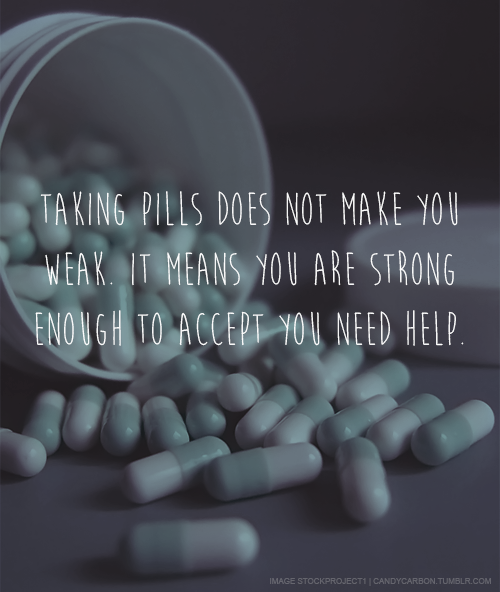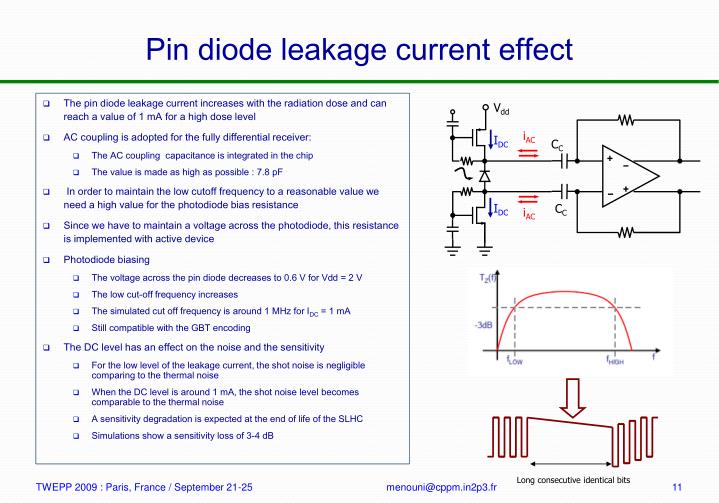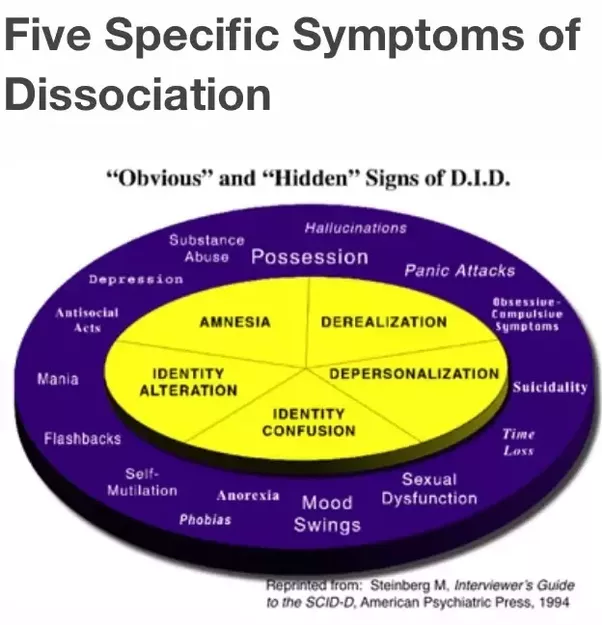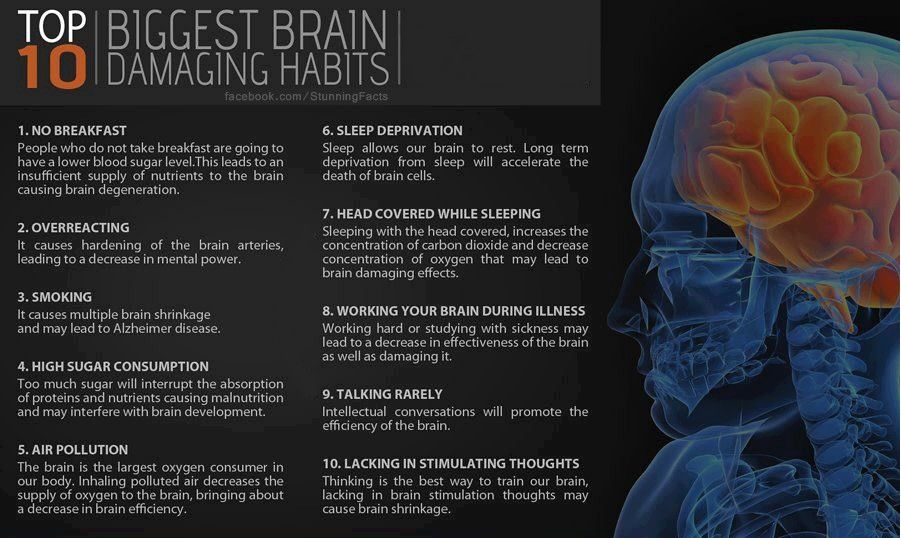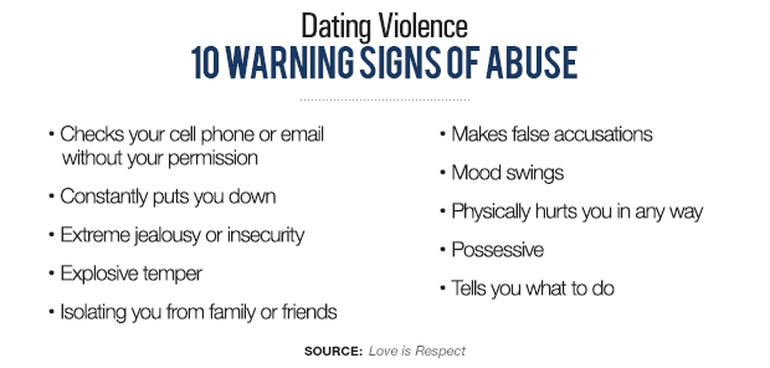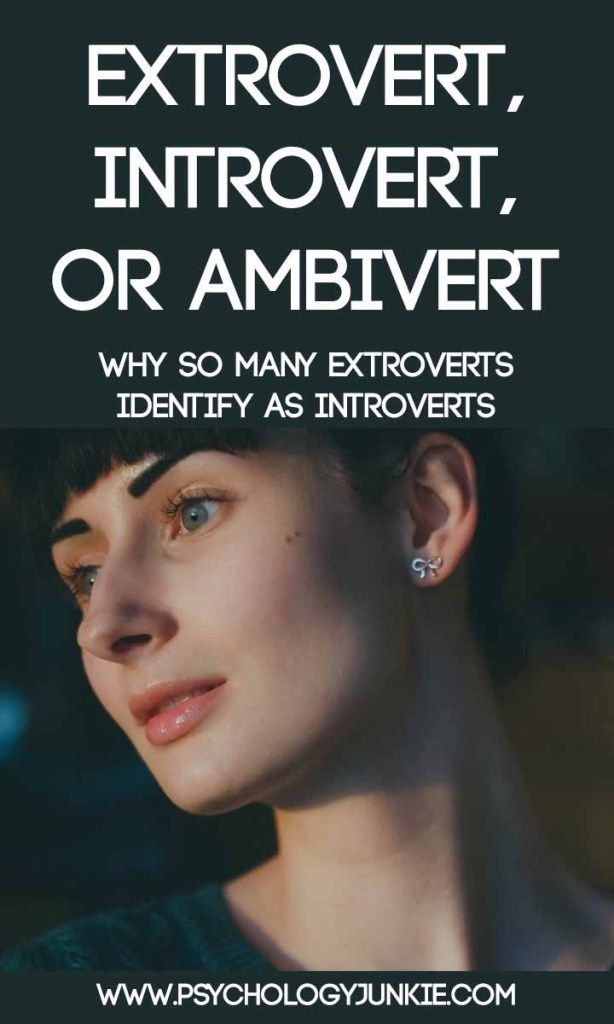Fast working antidepressants
Types, Time Frames, and More
It takes time before any antidepressant kicks in. But some medications relieve your symptoms faster than others.
Waiting for medication to work can be challenging. And if you’re having to try various options that don’t provide relief, finding a drug that does improve your symptoms can take a lot of time and effort.
Other options, such as ketamine and newer antidepressants, may help provide faster relief, reducing symptoms in days instead of weeks.
With the most common antidepressants, people usually start to feel the antidepressant effects after 1 to 2 weeks of taking the medication.
According to a 2008 review, you might notice the effects of selective serotonin reuptake inhibitors (SSRI) after a week of use, with symptoms continuing to improve for at least 6 weeks. The time frame varies based on each person’s circumstances.
Common antidepressants include:
- SSRIs such as fluoxetine (Prozac), citalopram (Celexa), and sertraline (Zoloft)
- serotonin-norepinephrine reuptake inhibitors (SNRIs) such as venlafaxine (Effexor), desvenlafaxine (Pristiq), and duloxetine (Cymbalta)
While these antidepressants work for many people, some other medication options have faster action and might be useful when a person doesn’t respond to other antidepressants (treatment-resistant depression) or needs relief right away to keep them safe.
Ketamine
Ketamine is a medication originally used for anesthesia and pain relief, but medical professionals also use it to help people with treatment-resistant depression.
Unlike other antidepressants, ketamine can improve depression symptoms in just a few hours. A 2018 clinical trial found that intravenous ketamine significantly and quickly reduced suicidal ideation in people with depression.
The Food and Drug Administration (FDA) approved a ketamine-derived drug called esketamine in 2019 for treatment-resistant depression. Esketamine comes in the form of a nasal spray.
Esketamine is part of a new class of antidepressant drugs called N-methyl-d-aspartate (NMDA) receptor blockers.
By blocking NMDA brain receptors, esketamine (and other NDMA receptor blockers) stimulate the release of the neurotransmitter glutamate, which helps create new neural connections. Experts believe that stimulating new brain connections can improve depression symptoms.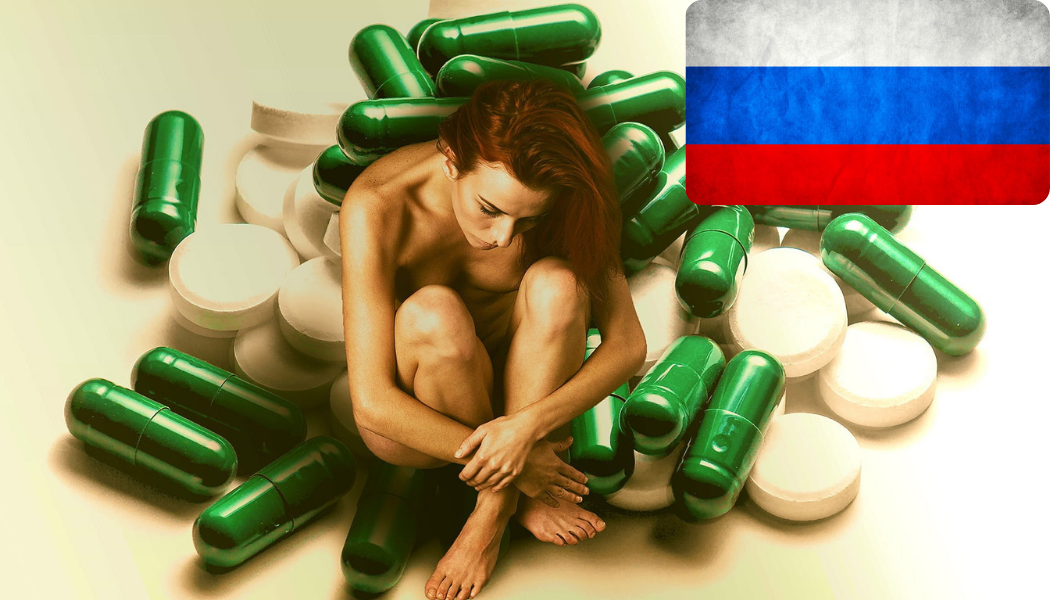
A 4-week study from 2015 of 30 people found that treatment involving ketamine and an SSRI (escitalopram )was well-tolerated and helped with severe depression symptoms, compared with those who took only the SSRI.
Ketamine and ketamine-derived products come with potential side effects, including:
- sedation
- dissociation
- dizziness
- nausea
- vertigo
- anxiety
- increased blood pressure
- vomiting
Because of the potential for severe side effects, a healthcare professional will need to monitor you for at least 2 hours after taking your first dose. And while the prescription nasal spray is easy to administer, you’ll need to take it in a doctor’s office and not at home.
The FDA warns that esketamine (brand name Spravato) can cause dissociation and sedation. There’s also the potential for misuse, so it’s listed as a schedule 3 drug on the Drug Enforcement Administration (DEA) list of controlled substances.
Other fast-acting medications
While esketamine is the only FDA-approved fast-acting antidepressant, research is ongoing to find new depression medications that offer faster relief than traditional options.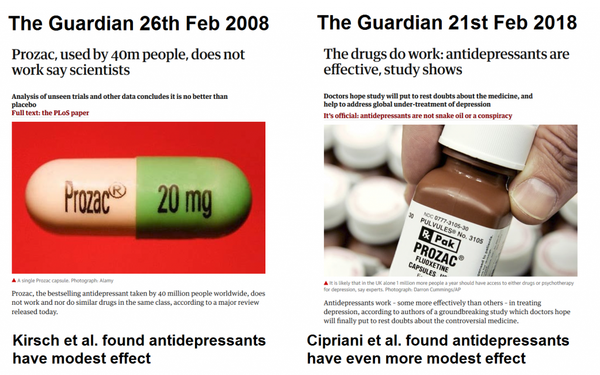
A 2021 clinical trial of a drug called zuranolone found that the drug significantly reduced symptoms in people with postpartum depression compared to the control group.
The FDA approved another drug called brexanolone in 2019, also for postpartum depression. Brexanolone is administered via infusion, unlike zuranolone, an oral drug.
Some antidepressant medications may also help quickly address anxiety symptoms. Still, they may not have the same effect on depression symptoms.
For example, a 2019 placebo-controlled trial found that sertraline, a type of SSRI medication, weakly improved depression symptoms within 12 weeks but reduced anxiety in half that time.
The gold standard treatment for depression involves therapy, medication, or both. But not everyone has access to treatments. Checking out affordable treatment options and learning to cope with the symptoms daily is helpful.
You might consider trying these coping tips:
- Make quality time for yourself.
 Whether that involves relaxing with your favorite book or soaking in a bubble bath after a long day, setting aside time for self-care may help provide some relief.
Whether that involves relaxing with your favorite book or soaking in a bubble bath after a long day, setting aside time for self-care may help provide some relief. - Go for a walk. Being outdoors and getting exposure to sunlight can help boost vitamin D levels and improve your mood.
- Do something active. It can be hard to find the energy to move when feeling depressed, but even a short burst of exercise could release feel-good endorphins.
- Call up a friend. If talking on the phone isn’t appealing, send a text message or set up a video meeting to catch up. Depression can make you feel isolated, so setting aside time to be with others, whether online or in person, may help you feel less alone.
Looking for more tips? You can check out Psych Central’s article on how to feel better fast when you have depression.
Whether you’re trying a new depression medication for the first time or are curious about other options, finding the right antidepressant can take some time.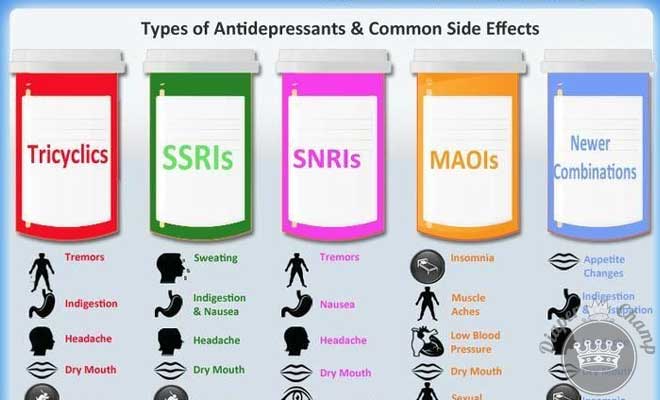
Learning about the options and talking about them with a doctor may help you feel better equipped to choose an antidepressant that’s right for your needs.
And while medication is often an important part of treating depression, therapy and self-care strategies are also valuable tools to consider.
Are you thinking about talking with someone about your depression symptoms but aren’t sure where to start? Consider checking out Psych Central’s How to Find Mental Health Support resource for more information.
Rapid-acting antidepressants - PubMed
Review
. 2019;86:47-96.
doi: 10.1016/bs.apha.2019.03.002. Epub 2019 Apr 24.
Jeffrey M Witkin 1 , Anna E Martin 2 , Lalit K Golani 3 , Nina Z Xu 2 , Jodi L Smith 4
Affiliations
Affiliations
- 1 Witkin Consulting Group, Carmel, IN, United States; Department of Neurological Surgery, Indiana University School of Medicine, Indianapolis, IN, United States; Department of Chemistry & Biochemistry, University of Wisconsin-Milwaukee, Milwaukee, WI, United States.
 Electronic address: [email protected].
Electronic address: [email protected]. - 2 Witkin Consulting Group, Carmel, IN, United States.
- 3 Department of Chemistry & Biochemistry, University of Wisconsin-Milwaukee, Milwaukee, WI, United States.
- 4 Laboratory of Antiepileptic Drug Discovery, St. Vincent's Hospital, Indianapolis, IN, United States.
- PMID: 31378256
- DOI: 10.1016/bs.apha.2019.03.002
Review
Jeffrey M Witkin et al. Adv Pharmacol. 2019.
.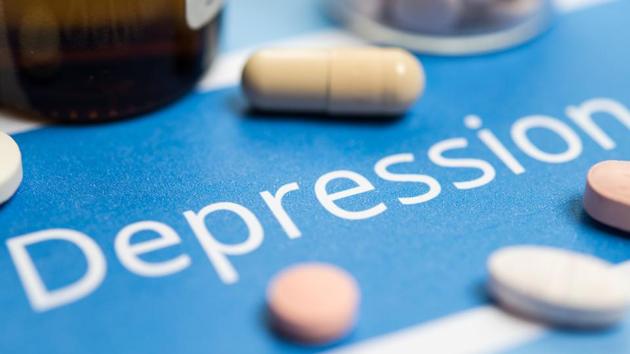 2019;86:47-96.
2019;86:47-96.
doi: 10.1016/bs.apha.2019.03.002. Epub 2019 Apr 24.
Authors
Jeffrey M Witkin 1 , Anna E Martin 2 , Lalit K Golani 3 , Nina Z Xu 2 , Jodi L Smith 4
Affiliations
- 1 Witkin Consulting Group, Carmel, IN, United States; Department of Neurological Surgery, Indiana University School of Medicine, Indianapolis, IN, United States; Department of Chemistry & Biochemistry, University of Wisconsin-Milwaukee, Milwaukee, WI, United States. Electronic address: [email protected].
- 2 Witkin Consulting Group, Carmel, IN, United States.

- 3 Department of Chemistry & Biochemistry, University of Wisconsin-Milwaukee, Milwaukee, WI, United States.
- 4 Laboratory of Antiepileptic Drug Discovery, St. Vincent's Hospital, Indianapolis, IN, United States.
- PMID: 31378256
- DOI: 10.1016/bs.apha.2019.03.002
Abstract
Conventional antidepressants (biogenic amine mechanisms) are not fully efficacious (e.g., symptoms remain after treatment, not all patients respond), produce effects only after weeks of daily dosing, and do not impact all disease symptoms. In contrast, a new class of antidepressants has been emerging since 2006 that has demonstrated rapid onset, large effect size, activity after only a single or few dose applications, and positive impact in treatment refractory patients and against some treatment-resistant symptoms (e. g., anhedonia). Rapid-acting antidepressant drug action has been demonstrated in controlled clinical studies for ketamine, a few other NMDA receptor antagonists, and scopolamine. Less clinical data are currently available for psychedelic drugs such as psilocybin, lysergic acid diethylamide, and ayahuasca. The mechanisms of action of rapid-acting antidepressants are not fully understood. However, a general triggering mechanism appears to involve the potentiation of AMPA receptor function. Although the durability of antidepressant effects of ketamine and scopolamine is limited, psychedelic drugs have been reported to produce effects for many months. The primary impediment to generating a medicine of this type for depressed patients is side effects and the lack of methods to ensure enduring antidepressant effects. Thus, further exploration of drug possibilities continues. Esketamine ((S)-ketamine) was recently FDA approved. Compounds currently in clinical development include the NMDA receptor antagonist (R)-ketamine, the NMDA receptor modulator, GLYX-13 (Rapastinel), and the AMPA receptor potentiator TAK-653.
g., anhedonia). Rapid-acting antidepressant drug action has been demonstrated in controlled clinical studies for ketamine, a few other NMDA receptor antagonists, and scopolamine. Less clinical data are currently available for psychedelic drugs such as psilocybin, lysergic acid diethylamide, and ayahuasca. The mechanisms of action of rapid-acting antidepressants are not fully understood. However, a general triggering mechanism appears to involve the potentiation of AMPA receptor function. Although the durability of antidepressant effects of ketamine and scopolamine is limited, psychedelic drugs have been reported to produce effects for many months. The primary impediment to generating a medicine of this type for depressed patients is side effects and the lack of methods to ensure enduring antidepressant effects. Thus, further exploration of drug possibilities continues. Esketamine ((S)-ketamine) was recently FDA approved. Compounds currently in clinical development include the NMDA receptor antagonist (R)-ketamine, the NMDA receptor modulator, GLYX-13 (Rapastinel), and the AMPA receptor potentiator TAK-653.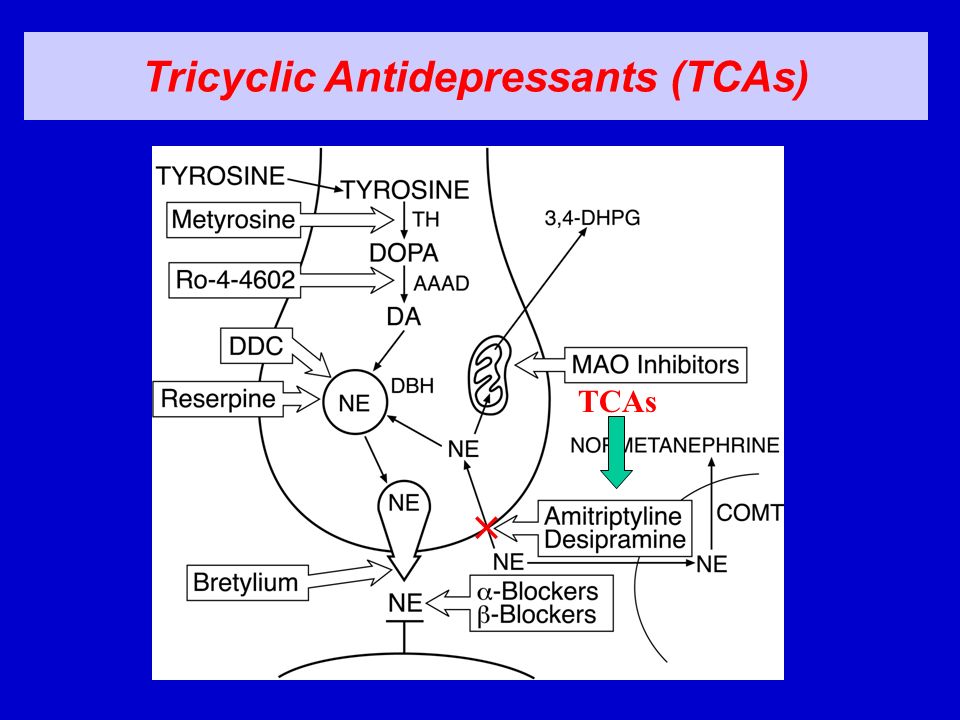 Additional pharmacological classes have produced effects in the preclinical laboratory to suggest their potential as rapid-acting agents. These include mGlu2/3 receptor antagonists, AMPA receptor potentiators, and negative allosteric modulators of GABAA(α5) receptors. In all cases, molecules exist that could be used to provide clinical proof of concept testing.
Additional pharmacological classes have produced effects in the preclinical laboratory to suggest their potential as rapid-acting agents. These include mGlu2/3 receptor antagonists, AMPA receptor potentiators, and negative allosteric modulators of GABAA(α5) receptors. In all cases, molecules exist that could be used to provide clinical proof of concept testing.
Keywords: GABAA α5; Ketamine; Psychedelic drugs; Rapid-acting antidepressants; Scopolamine; mGlu2/3 receptor antagonists.
© 2019 Elsevier Inc. All rights reserved.
Similar articles
-
Rapid-Acting Antidepressants.
Witkin JM, Knutson DE, Rodriguez GJ, Shi S. Witkin JM, et al. Curr Pharm Des. 2018;24(22):2556-2563. doi: 10.2174/1381612824666180730104707. Curr Pharm Des. 2018. PMID: 30058481 Review.

-
Involvement of muscarinic receptor mechanisms in antidepressant drug action.
Witkin JM, Smith JL, Golani LK, Brooks EA, Martin AE. Witkin JM, et al. Adv Pharmacol. 2020;89:311-356. doi: 10.1016/bs.apha.2020.03.003. Epub 2020 May 5. Adv Pharmacol. 2020. PMID: 32616212
-
An extension of hypotheses regarding rapid-acting, treatment-refractory, and conventional antidepressant activity of dextromethorphan and dextrorphan.
Lauterbach EC. Lauterbach EC. Med Hypotheses. 2012 Jun;78(6):693-702. doi: 10.1016/j.mehy.2012.02.012. Epub 2012 Mar 7. Med Hypotheses. 2012. PMID: 22401777
-
Where do we go next in antidepressant drug discovery? A new generation of antidepressants: a pivotal role of AMPA receptor potentiation and mGlu2/3 receptor antagonism.
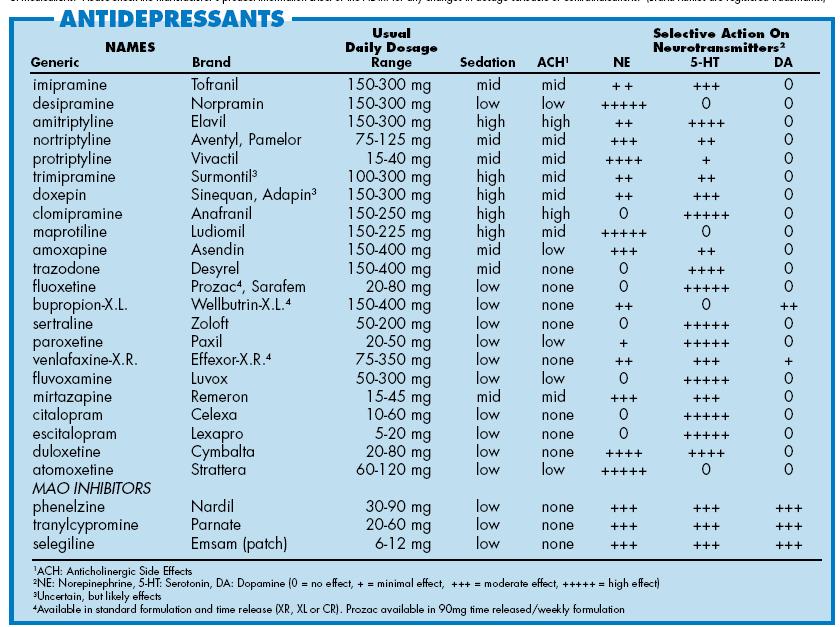
Pilc A, Machaczka A, Kawalec P, Smith JL, Witkin JM. Pilc A, et al. Expert Opin Drug Discov. 2022 Oct;17(10):1131-1146. doi: 10.1080/17460441.2022.2111415. Epub 2022 Aug 22. Expert Opin Drug Discov. 2022. PMID: 35934973
-
Molecular and Cellular Mechanisms of Rapid-Acting Antidepressants Ketamine and Scopolamine.
Wohleb ES, Gerhard D, Thomas A, Duman RS. Wohleb ES, et al. Curr Neuropharmacol. 2017;15(1):11-20. doi: 10.2174/1570159x14666160309114549. Curr Neuropharmacol. 2017. PMID: 26955968 Free PMC article. Review.
See all similar articles
Cited by
-
Ketamine induces rapid antidepressant effects via the autophagy-NLRP3 inflammasome pathway.
Lyu D, Wang F, Zhang M, Yang W, Huang H, Huang Q, Wu C, Qian N, Wang M, Zhang H, Zheng S, Chen J, Fu Y, Zhang C, Li Z, Hong W.
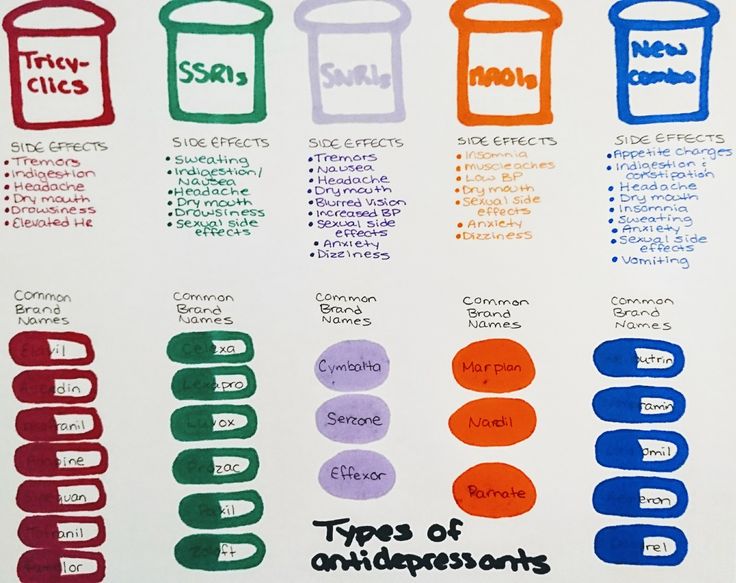 Lyu D, et al. Psychopharmacology (Berl). 2022 Oct;239(10):3201-3212. doi: 10.1007/s00213-022-06201-w. Epub 2022 Aug 4. Psychopharmacology (Berl). 2022. PMID: 35925279
Lyu D, et al. Psychopharmacology (Berl). 2022 Oct;239(10):3201-3212. doi: 10.1007/s00213-022-06201-w. Epub 2022 Aug 4. Psychopharmacology (Berl). 2022. PMID: 35925279 -
Effects of stress on endophenotypes of suicide across species: A role for ketamine in risk mitigation.
Lamontagne SJ, Ballard ED, Zarate CA Jr. Lamontagne SJ, et al. Neurobiol Stress. 2022 Apr 20;18:100450. doi: 10.1016/j.ynstr.2022.100450. eCollection 2022 May. Neurobiol Stress. 2022. PMID: 35685678 Free PMC article. Review.
-
Novel Antidepressants in the Pipeline (Phase II and III): A Systematic Review of the US Clinical Trials Registry.
Sakurai H, Yonezawa K, Tani H, Mimura M, Bauer M, Uchida H. Sakurai H, et al. Pharmacopsychiatry.
 2022 Jul;55(4):193-202. doi: 10.1055/a-1714-9097. Epub 2022 Jan 19. Pharmacopsychiatry. 2022. PMID: 35045580 Free PMC article.
2022 Jul;55(4):193-202. doi: 10.1055/a-1714-9097. Epub 2022 Jan 19. Pharmacopsychiatry. 2022. PMID: 35045580 Free PMC article. -
Novel drug developmental strategies for treatment-resistant depression.
Borbély É, Simon M, Fuchs E, Wiborg O, Czéh B, Helyes Z. Borbély É, et al. Br J Pharmacol. 2022 Mar;179(6):1146-1186. doi: 10.1111/bph.15753. Epub 2022 Jan 26. Br J Pharmacol. 2022. PMID: 34822719 Free PMC article. Review.
-
Molecular Mechanisms of Psilocybin and Implications for the Treatment of Depression.
Ling S, Ceban F, Lui LMW, Lee Y, Teopiz KM, Rodrigues NB, Lipsitz O, Gill H, Subramaniapillai M, Mansur RB, Lin K, Ho R, Rosenblat JD, Castle D, McIntyre RS. Ling S, et al. CNS Drugs. 2022 Jan;36(1):17-30.
 doi: 10.1007/s40263-021-00877-y. Epub 2021 Nov 17. CNS Drugs. 2022. PMID: 34791625 Review.
doi: 10.1007/s40263-021-00877-y. Epub 2021 Nov 17. CNS Drugs. 2022. PMID: 34791625 Review.
See all "Cited by" articles
Publication types
MeSH terms
Substances
Fighting depression: 10 modern drugs
{{if type === 'partner-stocks'}}
{{/if}}
{{/if}} {{each list}}${this} {{if isGorzdrav}}
Delete
{{/if}}
{{/each}} {{/if}} Search by drug, disease, substance: DERMAKOSMETIKA, SOLGAR, NaturAge, Voltaren, KagocelHome
Articles
Fighting depression: 10 modern drugs
Depression is an urgent problem, the number of visits to doctors is growing every year.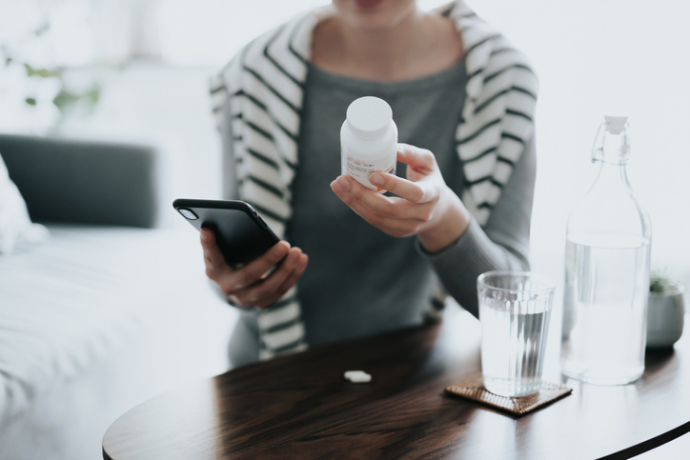 It can be solved by contacting a psychotherapist and taking antidepressants . These are drugs that regulate the production of hormones and biochemical processes in the body. It is strictly forbidden to prescribe them to oneself , as these are complex drugs with certain restrictions, side effects effects . The doctor must authorize their appointment and control the intake. We will tell you which of them are the most effective and common in medicine, how many they have pluses and minuses.
It can be solved by contacting a psychotherapist and taking antidepressants . These are drugs that regulate the production of hormones and biochemical processes in the body. It is strictly forbidden to prescribe them to oneself , as these are complex drugs with certain restrictions, side effects effects . The doctor must authorize their appointment and control the intake. We will tell you which of them are the most effective and common in medicine, how many they have pluses and minuses.
What is meant by
depression Doctors have known it since ancient Greece and Egypt. Hippocrates described it as melancholy - a condition that is accompanied by anxiety, despondency, insomnia, refusal of food, irritability. Most often, the cause is childhood trauma or severe, frequent stress in adulthood. There are many provoking factors: the death of a loved one, deterioration of living conditions, alcoholism, brain diseases.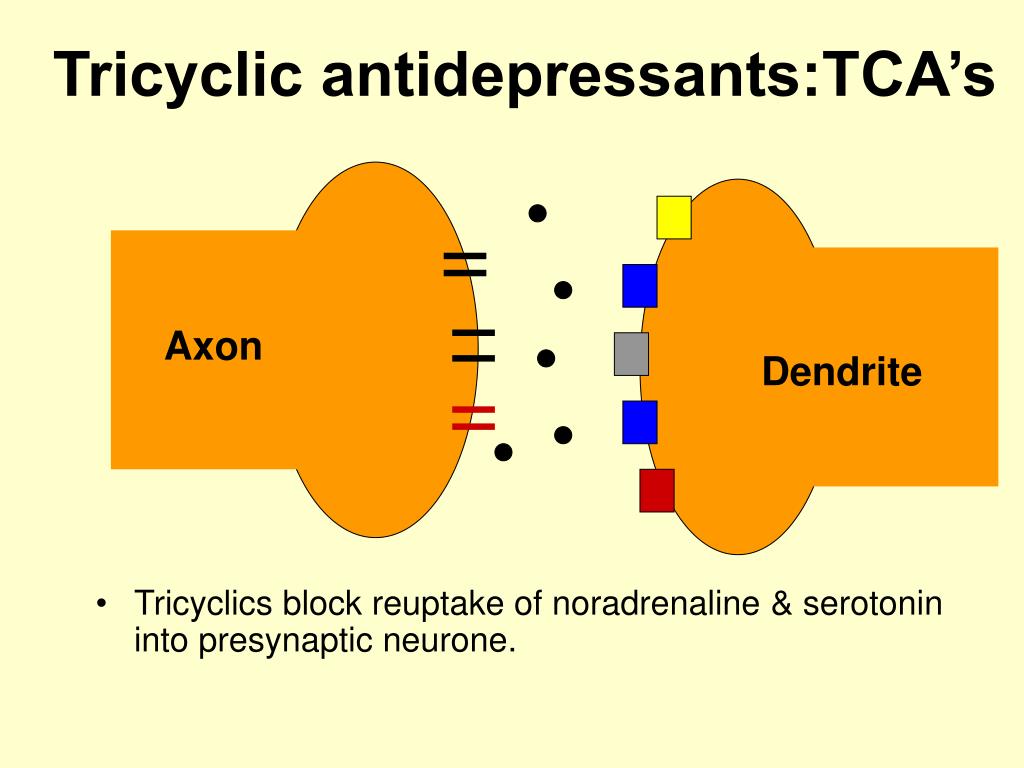 Such cases are referred to as psychogenic depression.
Such cases are referred to as psychogenic depression.
The second type is endogenous. The problem appears not from large external shocks, but because of internal causes. A person is constantly dissatisfied with himself, subjecting himself to criticism. Many patients have panic attacks , haunted by a feeling of fear, anxiety.
How long the period of depression lasts
Many people mistake ordinary periods of low mood for depression. If they do not last long and are quickly replaced by periods of recovery, then we are not talking about a depressive state. The problem is obvious when the symptoms persist for months and dramatically change a person's life. Then you need to see a doctor.
What happens to the body
The most common theory is that there is a malfunction of neurotransmitters located in the brain. These substances transmit signals from neuron to neuron and are responsible for a person's mood.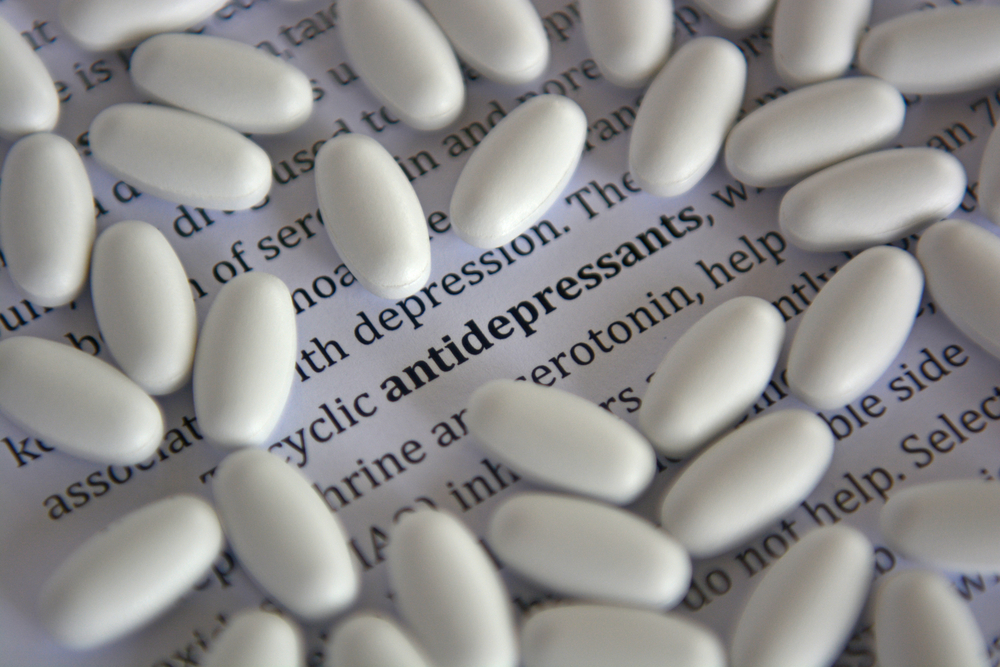 Dysfunction leads to a slowdown in the rate of this transmission and a decrease in the number of neurotransmitters themselves. Serotonin, which is called the "hormone of happiness", suffers the most. For clarity, this biochemical process can be compared, for example, with a drop in blood sugar levels in diabetes mellitus.
Dysfunction leads to a slowdown in the rate of this transmission and a decrease in the number of neurotransmitters themselves. Serotonin, which is called the "hormone of happiness", suffers the most. For clarity, this biochemical process can be compared, for example, with a drop in blood sugar levels in diabetes mellitus.
How is
treated depressionDepression has been treated in different ways. In the ancient world - emetics and laxatives. In the Renaissance - wine and sunbathing. In the Age of Enlightenment - external stimuli, for example, insects. The 19th century brought new recipes - in particular, a solution of camphor in tartaric acid. The treatment also included the use of drugs, which are now no longer allowed for sale, and some are recognized as narcotic.
Obviously, all these drugs did not affect the increase in the amount of serotonin. And the treatment is precisely to normalize its production. This was done after creating modern antidepressants , which have a minimum of side effects, are safe for the body and are not addictive. These are drugs, whose action is aimed precisely at balancing the disturbed balance of neurotransmitters: serotonin, norepinephrine, dopamine.
These are drugs, whose action is aimed precisely at balancing the disturbed balance of neurotransmitters: serotonin, norepinephrine, dopamine.
Prescription
If a healthy person takes antidepressants , there will be no effect . For a depressed patient, taking them will help:
- improve psychological state;
- get rid of irritability;
- panic fear;
- increase mental and physical activity;
- overcome the dreary mood.
Psychiatrists prescribe antidepressants for chronic back pain, headaches. And also with irritable bowel syndrome, incontinence and other cases when the body stops producing its own painkillers. Medication helps restore pain suppression mechanisms.
You can only take these drugs with a doctor's prescription, as many of them are strong stimulants. Self-administration can cost dearly - the condition may worsen. Only a doctor will correctly calculate how many medicines to take per day. In parallel with the treatment by a psychiatrist, a neurologist, a consultation of a psychotherapist is required.
Self-administration can cost dearly - the condition may worsen. Only a doctor will correctly calculate how many medicines to take per day. In parallel with the treatment by a psychiatrist, a neurologist, a consultation of a psychotherapist is required.
Precautions
- Prescribed drug start drinking from a small dose - the first couple of days they take a quarter of a tablet. Gradually increase the dose to normal. So the body adapts better. Finish the course by reducing the dose.
- The first effect of appears only 2 weeks after the start of administration. Sustained action - after six months. All this time, you need to take remedy, without making passes, breaks.
-
Products are not combined with melatonin, St. John's wort, products and dietary supplements based on sibutramine, 5-HTP. Their combination can raise serotonin to dangerous levels.
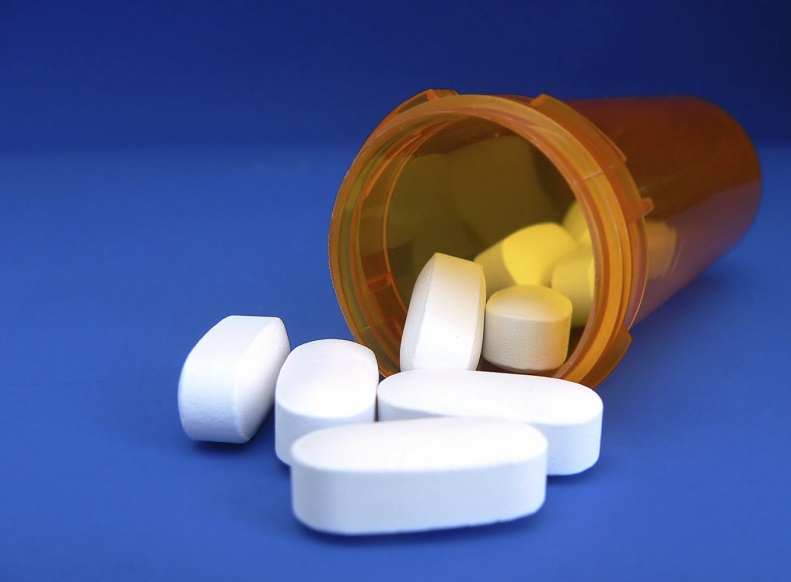 Also, you can not combine them with monoamine oxidase inhibitors, for example, Cipralex. When writing a prescription, the doctor takes these points into account.
Also, you can not combine them with monoamine oxidase inhibitors, for example, Cipralex. When writing a prescription, the doctor takes these points into account. - Drinking antidepressants is better in parallel with visits to a psychotherapist. If the drugs normalize the biochemical processes in the body, then this doctor will help normalize the psychological state after depression.
The best antidepressants
In medicine, they have long argued that some drugs give only a placebo effect. The purpose of the study was to find out which of them are the most effective and valid . The project involved 116 thousand patients, and its results were published by the authoritative edition of the Lancet. We offer a list of the best.
1. Agomelatine
New generation drug. Agomelatine is used for severe depressive disorders, high levels of anxiety. Enhances the release of dopamine and norepinephrine, stimulates melatonin receptors. The standard therapeutic dose is 25-50 mg 1 time / day. Helps to restore the normal structure of sleep, get rid of anxiety and panic attacks attacks
The standard therapeutic dose is 25-50 mg 1 time / day. Helps to restore the normal structure of sleep, get rid of anxiety and panic attacks attacks
Pros
+ Does not adversely affect attention and memory.
+ No lethargy during the day.
+ No sexual deviations.
+ No relation to blood pressure.
+ Do not reduce dosage upon discontinuation.
Cons
— In 1-10% of cases, increased sweating, diarrhea, constipation.
- Possible increased fatigue, drowsiness.
- There are no evidence-based safety studies in people with renal or hepatic insufficiency, therefore, such patients are advised to refrain from taking drugs with active ingredient agomelatine.
2. Amitriptyline
Tricyclic antidepressant. Moreover, the World Health Organization considers Amitriptyline the most reliable in this group. The standard dose is 200-250 mg / day. The action is to block the reuptake of neurotransmitters. A good remedy for moderate to severe disorders of the endogenous type. Additionally, it has a sedative and hypnotic effect. Effective in the treatment of neuropathic pain, for the prevention of migraine.
A good remedy for moderate to severe disorders of the endogenous type. Additionally, it has a sedative and hypnotic effect. Effective in the treatment of neuropathic pain, for the prevention of migraine.
Pluses
+ Preparations with active ingredient amitriptyline are inexpensive.
+ High reliability, minimum side effects.
+ Relatively safe during breastfeeding.
Cons
— Possible side effect in the form of blurred vision, dry mouth.
- Lowering blood pressure.
- Some patients experience constipation.
- Drowsiness.
3. Escitalopram
It belongs to the group of modern serotonin reuptake inhibitors (SSRIs). Most often, it is recommended to take for anxiety, panic attacks. It is taken once, the standard dose is 10 mg per day. Escitalopram has a milder effect and is prescribed to patients for whom tricyclic drugs are contraindicated.
Pluses
+ Lasting effect comes after 3 months.
+ Indicated for patients with disorders of the cardiovascular system.
+ Soft action.
Cons
- In some patients, the functions of the gastrointestinal tract are disturbed, which is most often expressed in diarrhea.
- Anxiety may increase during the first 2 weeks, therefore it is recommended to start treatment with low doses and gradually increase them.
- Contraindicated in pregnancy and lactation.
4. Mirtazapine
A drug of the tetracyclic group. Mirtazapine - good stimulant for anxious depressions, has a moderate sedative effect. The average amount is 30 mg / day, it must be consumed once. Usually it is prescribed to patients who lose interest in life, cease to experience joy, pleasure. Effective in the correction of sleep, in particular, early awakenings.
Pros
+ Earlier onset of action than SSRIs (1 week).
+ Works well with most general medicines.
+ Full effect in 4 weeks.
+ Does not affect sexual function.
Cons
- The active substance mirtazapine is contraindicated in diabetes mellitus, arterial hypotension, increased intraocular pressure.
— During the appointment, you must drive carefully and engage in potentially hazardous types of work.
- 18% of patients experience drowsiness, 15% dry mouth, 5% weight loss. Other side effects occur in 1-3% of cases.
5. Paroxetine
Belongs to the SSRI group, is used most often for severe anxiety, panic, social phobia, nightmares, stress after trauma. Paroxetine can resolve the problems of anxious depression, anxiety-phobic disorders. Take once a day at a dose of 20 mg.
Pros
+ The most powerful stimulant among SSRIs.
+ Anxiety and insomnia pass quickly.
+ Minimal side effects in the form of vomiting, diarrhea.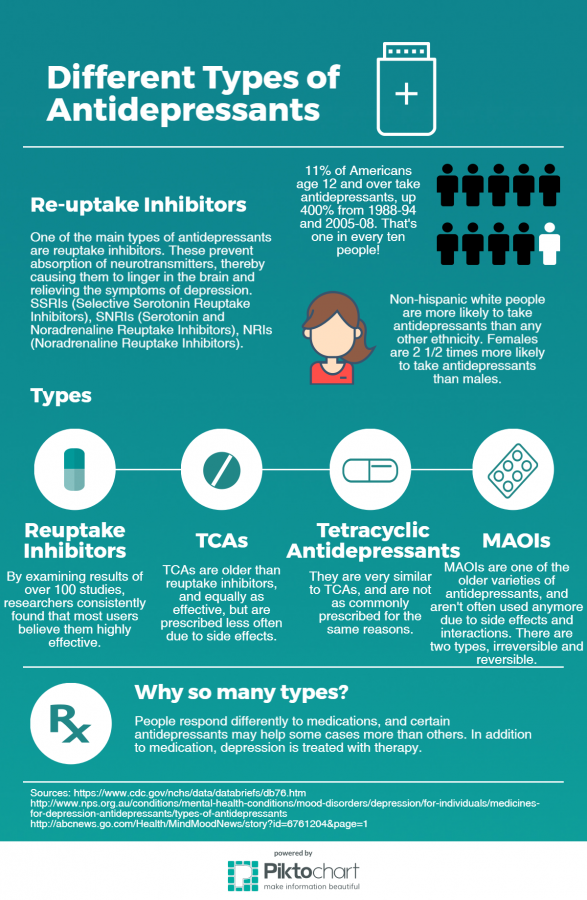
+ Suitable for patients with cardiovascular problems.
Cons
— Not suitable for patients with severe motor, mental inhibition.
- Reduces libido.
- Harmful to the fetus when taken during pregnancy.
6. Fluoxetine
One of the most commonly used antidepressants in the SSRI group. Known as Prozac. Fluoxetine is also known as a good mood stimulant. Patients have a feeling of fear, tension, anxiety, gloomy dislike for others. Depending on the indications, the average daily dose is 20-60 mg.
Pluses
+ There is practically no effect on the work of the heart.
+ Does not cause sedation.
+ Effective for patients with motor retardation and excessive daytime sleepiness.
Cons
- May cause weight loss.
— Hypoglycemia is possible in diabetes mellitus.
- Contraindicated in severe renal impairment.
7. Fluvoxamine
Another SSRI drug.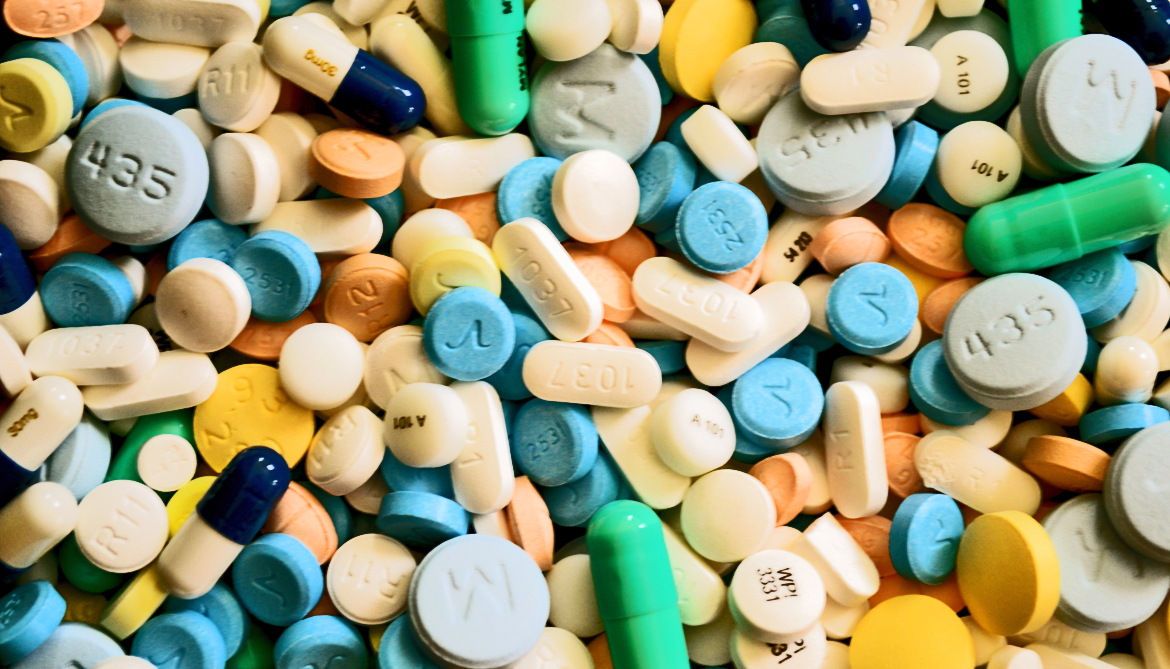 Fluvoxamine is similar to Prozac Fluoxetine but is fast acting and may cost cheaper. The effect is in a more active slowing down of the reuptake of serotonin by neurons. It is indicated for depression of various origins, as well as obsessive-compulsive disorders. The average daily dose is 100 mg.
Fluvoxamine is similar to Prozac Fluoxetine but is fast acting and may cost cheaper. The effect is in a more active slowing down of the reuptake of serotonin by neurons. It is indicated for depression of various origins, as well as obsessive-compulsive disorders. The average daily dose is 100 mg.
Pros
+ Lower price than traditional Prozac.
+ Faster action than him.
+ Relatively minor side effects (diarrhea, dry mouth, drowsiness).
Cons
- Contraindicated in diabetes.
- Pregnant women - with caution, lactation - prohibited.
- Causes nausea in some patients.
8. Sertraline
One of the widely used and universal drugs of the SSRI group. They treat almost any depressive condition, panic disorder, social phobia. However, in severe clinical cases, sertraline may not be effective enough. The standard dose is 50 mg/day.
Pros
+ No cardiotoxicity.
+ The patient's psychomotor activity does not change.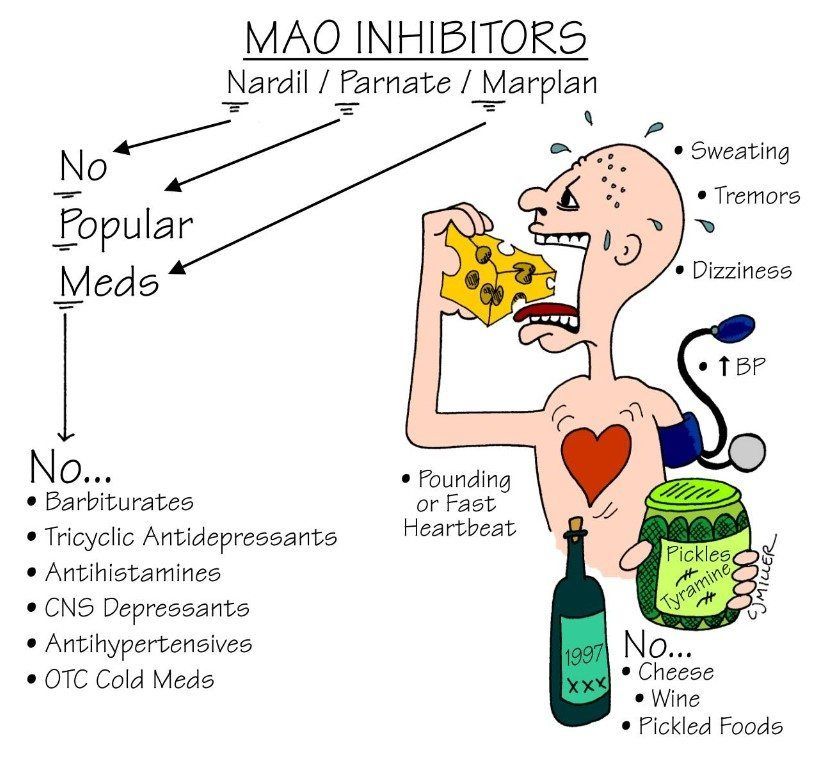
+ Does not increase body weight.
+ Combines well with other groups of antidepressants.
Cons
— In the first 2 weeks there may be problems with sleep, diarrhea.
- Side effects of a sexual nature.
- Contraindicated in pregnant women.
9. Escitalopram
The drug is classified as an SSRI. Its difference is in its effectiveness in depression, which is accompanied by involuntary movements (tic, tremor, chewing, smacking). Escitalopram is prescribed to patients with panic, anxiety, phobias, obsessive thoughts or actions. The daily dose is 20 mg.
Pluses
+ Effective in tardive dyskinesia.
+ One of the most powerful SSRIs.
+ More pronounced thymoleptic effect (improvement of mood) compared to many antidepressants of the same group.
Cons
- In some patients, anxiety increases within 2 weeks after starting treatment.
— Gastrointestinal disorders, insomnia, agitation are possible.
— Use during pregnancy only in extreme cases, incompatible with feeding.
10. Venlafaxine
Belongs to the SNRI group. In addition to blocking the reuptake of serotonin, venlafaxine has a similar effect on another neurotransmitter, norepinephrine. The medicine is prescribed for depressive conditions of various origins, social phobias, anxiety, panic. Usually take 150 mg per day.
Pros
+ Better tolerated by patients than most tricyclics.
+ More pronounced effect than classic SSRIs.
+ Fewer contraindications.
Cons
- Traditional side effects of most antidepressants: nausea, drowsiness, dry mouth, diarrhea or constipation.
- May increase eye pressure.
- The most severe withdrawal syndrome among antidepressant drugs.
This list is not to be used as a recommendation. In any case, consult your doctor before purchasing. Be healthy!
list of the best drugs without prescriptions
Can I buy antidepressants without prescriptions? What mood improvers are most effective, when will lighter drugs help, and when powerful ones are needed, how do they affect the body, and can they be taken on their own? The main thing when choosing a medicine is not to harm your health.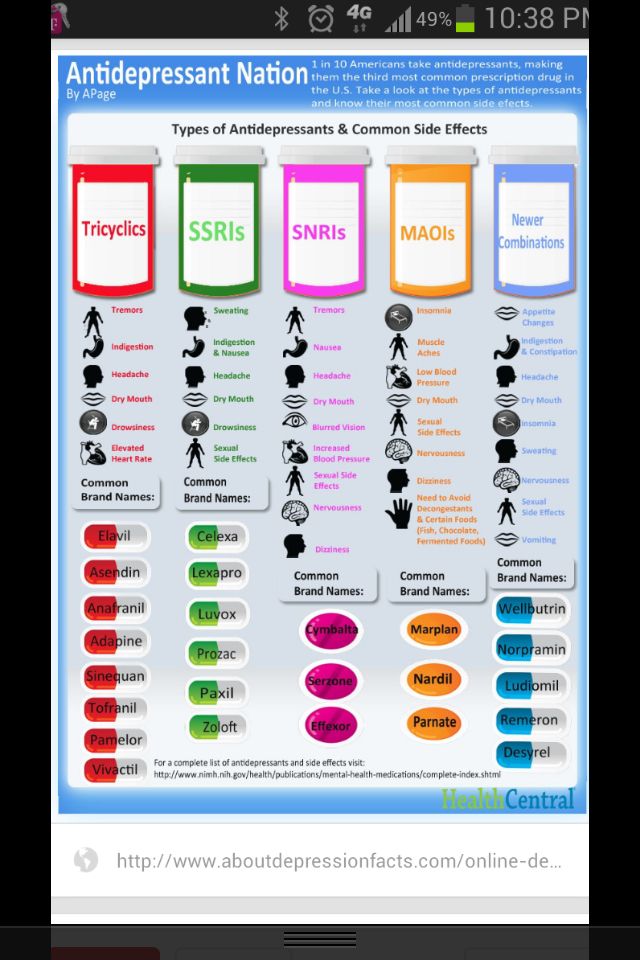
I'm depressed!
This can often be heard from friends or read on the forum. But, as a rule, the person making such statements is mistaken. After all, what is meant by "depression" in a colloquial environment? Usually it means just a short-term deterioration in mood, irritability, fatigue under the influence of circumstances. Sometimes a person just has a "bad day" or "gets up on the wrong foot" and calls it depression.
Nowadays, people are constantly faced with stress: overload at work, a frantic pace of life, excessive demands on themselves, a huge amount of information that flows from all sources. Not surprisingly, many people cannot cope with so many stressors, and this can manifest itself in various symptoms:
- anxiety;
- irritability;
- fatigue;
- sleep disorders;
- obsessive thoughts;
- panic attacks.
If these symptoms are short-lived and go away on their own, don't get too upset. In most cases, they will be defeated by just a good rest. But sometimes vacation is not enough, and the body needs a little help. It is very important to choose the right medicines for this.
In most cases, they will be defeated by just a good rest. But sometimes vacation is not enough, and the body needs a little help. It is very important to choose the right medicines for this.
What depression really is
This is a long-term (2 weeks or more) marked decrease in mood, which is accompanied by several additional symptoms: decrease in activity, slowing down of mental activity, lack of joy from life. That is, if you are no longer touched by the usual joys - hobbies, family, gatherings with friends, then this is an occasion to think, observe your condition and, possibly, consult a doctor.
If you are no longer touched by the usual joys, then this is an occasion to think and, perhaps, consult a doctor.True depression is a serious and often serious illness that requires mandatory treatment by a psychiatrist with the appointment of special medications.
What drugs are used to treat depression?
They are collectively called antidepressants.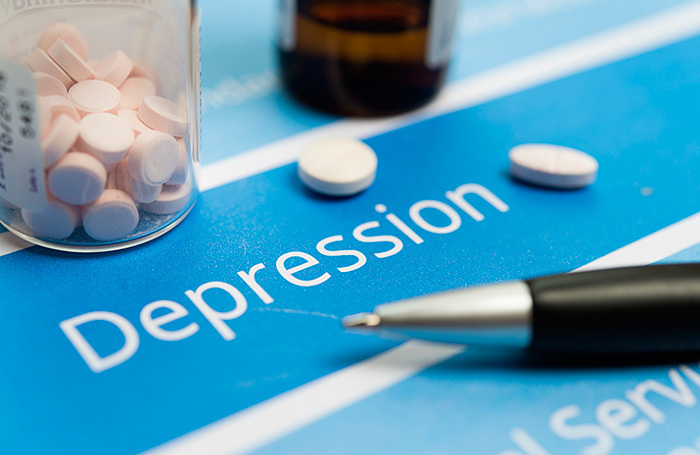 It is worth noting that in recent years, the indications for prescribing antidepressants have expanded significantly. Numerous studies have been conducted that have shown the effectiveness of antidepressants not only for depression, but also for anxiety, sleep disorders (insomnia), neurosis, and even neuropathic pain. Today, drugs from different groups of antidepressants are widely prescribed by psychiatrists, neurologists, and even therapists.
It is worth noting that in recent years, the indications for prescribing antidepressants have expanded significantly. Numerous studies have been conducted that have shown the effectiveness of antidepressants not only for depression, but also for anxiety, sleep disorders (insomnia), neurosis, and even neuropathic pain. Today, drugs from different groups of antidepressants are widely prescribed by psychiatrists, neurologists, and even therapists.
Two groups of drugs are most commonly used.
Tricyclic antidepressants
These are the oldest drugs that are considered the most powerful:
- Amitriptyline is a drug with a strong sedative and powerful antidepressant effect. Large doses are used to treat severe depression, and small doses are used for milder disorders. It relieves anxiety and has a hypnotic effect.
- Anafranil is a drug of balanced action, usually more easily tolerated than amitriptyline, and also relieves anxiety well.
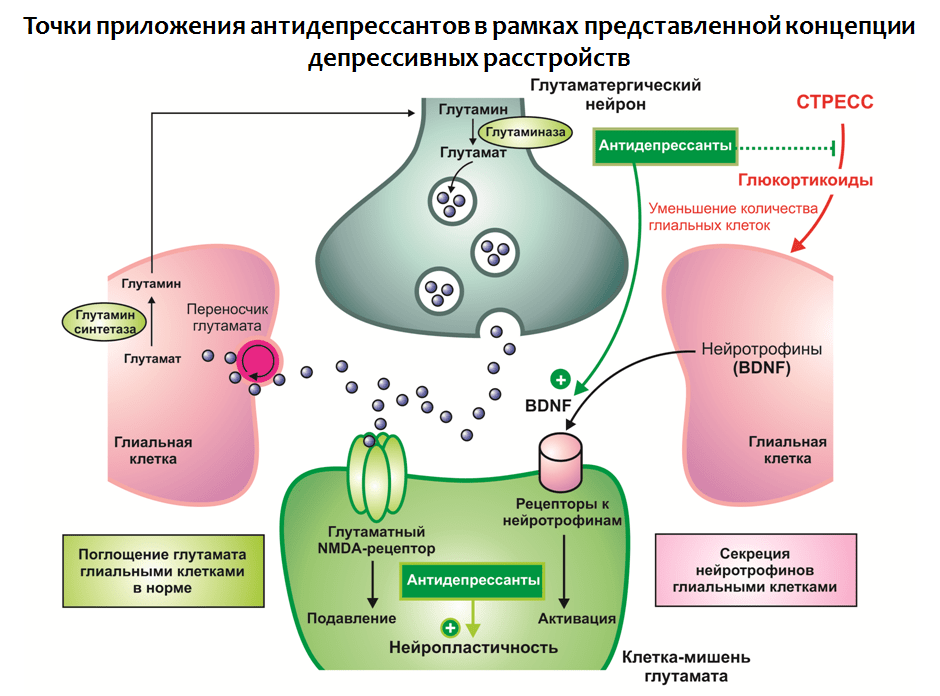 It is prescribed for the treatment of depression from mild to severe, various anxiety disorders.
It is prescribed for the treatment of depression from mild to severe, various anxiety disorders. - Melipramine - has a stimulating effect, they treat apathetic depression.
Selective serotonin reuptake inhibitors (SSRIs)
This is a more modern group of drugs. Their advantages are good tolerability and few or no side effects.
Often prescribed from this group:
- Fevarin — has anti-anxiety and good antidepressant effect. With prolonged use, it normalizes sleep, if it has been disturbed.
- Zoloft is a fairly strong daytime antidepressant. It relieves anxiety, obsessive thoughts, while not causing drowsiness.
- Paxil - relieves anxiety, often prescribed for the treatment of panic attacks.
There are many more modern antidepressants that have few side effects and are well tolerated:
- Ixel;
- Velaxin;
- Valdoxan;
- Trittiko;
- Simbalta and others.

But strong antidepressants are not sold without a prescription . They can only be prescribed by a doctor: a psychiatrist, a neurologist, sometimes a therapist.
Why can't I take antidepressants without a prescription?
- Only a doctor can assess the risk of side effects for a particular patient.
- Different antidepressants have different nuances of therapeutic action. If the medicine is chosen incorrectly, at best it will not help, at worst it will hurt.
- Dose selection is carried out individually. If you increase the dose too quickly on your own, you can experience a lot of unpleasant consequences.
- Cancellation should also be carried out gradually and under the supervision of a physician. Otherwise, you risk getting a withdrawal syndrome.
What to do?
There are a number of drugs available without a prescription. They are not effective for clinical depression, but they will help to cope with stress, short-term sleep disorders and irritability. With their help, you can try to alleviate your psycho-emotional state a little:
With their help, you can try to alleviate your psycho-emotional state a little:
- Glycine is one of the most popular products. It is prescribed, starting from childhood, with stress, overwork, emotional overstrain. Sometimes effective for minor sleep disturbances.
- Afobazole . Has an anti-anxiety effect, eliminates the feeling of fear, tearfulness, irritability. It is used in the treatment of vegetative-vascular dystonia and even in alcoholism, to alleviate the symptoms of alcohol withdrawal. Not addictive. It should be borne in mind that children under 18 years of age are contraindicated.
- Novo-passit . Quite a strong sedative for nervousness and irritability. Effective in reducing concentration, memory, fatigue. Helps to restore the nervous system during periods of increased stress.
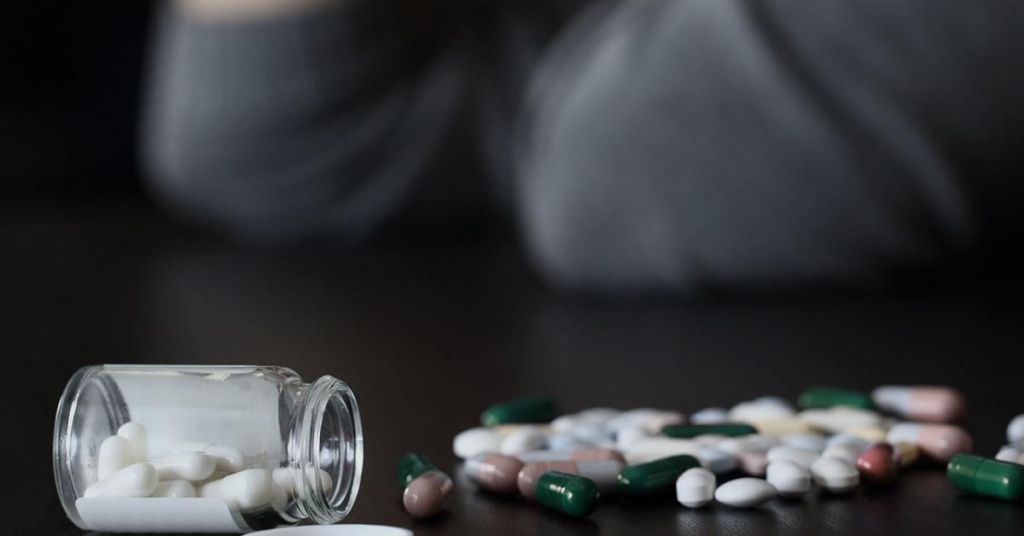
- Stressovit . Well calms, relieves irritability, anxiety, improves sleep. It is not recommended to drive a car and other activities that require increased concentration of attention during the period of treatment.
- Persen is a herbal medicine. Contains extracts of valerian, lemon balm and peppermint. It has a calming and anti-anxiety effect. It helps well with increased excitability, emotional lability, tearfulness. It can be used in the complex therapy of mild anxiety depressive disorders, facilitates the withdrawal of potent drugs.
- Magne B6 . Increases the body's resistance to stress. Magnesium deficiency can lead to an imbalance of the nervous system, irritability, sleep disturbances, so Magne B6 has a positive effect in these cases.
- Tenoten . It has an anti-anxiety, calming, anti-asthenic effect, helps to cope with stress and psycho-emotional stress.
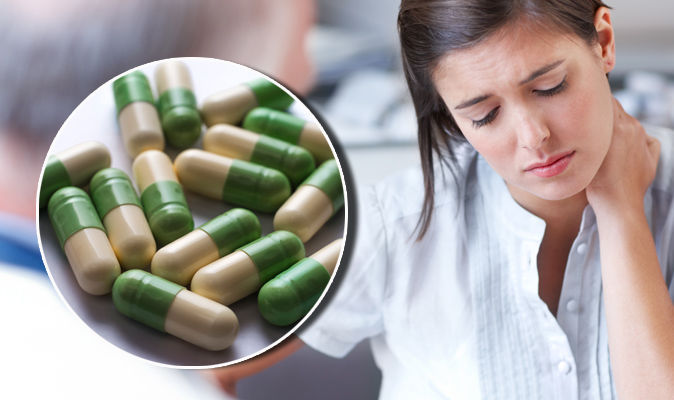 Relieves irritability and tension. Can be used in neurotic conditions.
Relieves irritability and tension. Can be used in neurotic conditions.
When should I see a doctor?
- If the decrease in mood persists for more than two weeks, and attempts at self-treatment have not been effective.
- If you have thoughts about unwillingness to live or suicidal thoughts.
- If depression significantly disrupts the usual course of life: you cannot work, fully communicate with your family, enjoy what used to bring joy.
You can consult a psychiatrist in confidence. Information about the very fact of treatment, not to mention the diagnosis and treatment, is a medical secret: they are not reported to work, they are not disclosed. It is better to diagnose depression early and start treatment than to bring it to advanced stages.
Literature
- Bauer M., Pfennig A., Severus E., Vaibrau P.S., Angst J., Muller H. Clinical recommendations of the World Federation of Biological Psychiatry on Biological Therapy of Unipolar Depressive Disorders Part 1: Acute and Acute and Acute CONTINUOUS TREATMENT OF UNIPOLAR DEPRESSIVE DISORDERS AS OF 2013//CURRENT THERAPY OF MENTAL DISORDERS Number: 4 Year: 2015 Pages: 33-40
- Antidepressant therapy and other treatments for depressive disorders.
